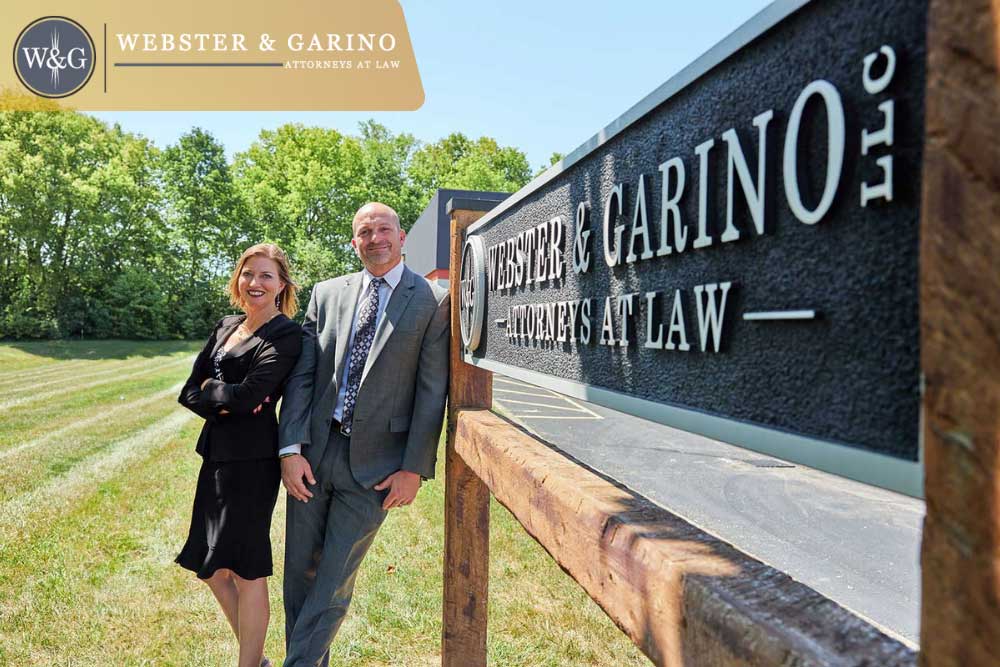Small Estate Probate in Indiana

When a loved one passes away, the legal steps to settle their estate can feel overwhelming. Fortunately, Indiana law offers a simplified path for smaller estates, allowing families to avoid the full probate process. At Webster & Garino, we help families across Indiana use these options to settle matters efficiently and with less stress.
If you are unsure whether your situation qualifies for simplified probate, this guide can help. You can also reach out to our office to speak directly with an experienced probate attorney who understands the legal requirements and the personal challenges that come with this process.
What Qualifies as a Small Estate in Indiana
Under Indiana Code § 29-1-8, an estate may be considered a “small estate” if the total value of the deceased person’s assets is less than $100,000. This threshold applies to the gross value of the estate, including all property, accounts, and personal belongings that do not pass outside of probate by joint ownership or beneficiary designations.
Key Criteria:
- The estate’s value is under $100,000.
- At least 45 days have passed since the individual’s death.
- No full probate proceeding has been started.
- The person presenting the affidavit is entitled to receive the assets.
It is important to note that debts and liabilities must still be paid, and the affidavit must state how those responsibilities will be handled.

How to Use the Affidavit Process
Indiana’s small estate affidavit process allows heirs or beneficiaries to collect property without formal probate. Often called summary administration, it can greatly reduce the time and cost of settling an estate.
Steps to File:
Wait 45 Days
Indiana law requires a 45-day waiting period after death before using the affidavit.
Prepare the Affidavit
Include a full list of the deceased’s assets and known debts. The document must confirm that the estate qualifies as small under Indiana law.
Present the Affidavit
Submit the signed affidavit directly to the institution holding the property, such as a bank, insurance provider, or BMV. No court filing is needed.
Distribute Assets
Once accepted, the assets can be transferred to the correct heirs or beneficiaries.
While this process is simpler than formal probate, a probate attorney can help ensure everything is accurate. Incomplete or incorrect affidavits may be rejected or require extra steps.
Timeline and Typical Delays
Probate in Indiana can last anywhere from six months to several years, depending on the complexity of the estate. Simpler cases with clearly defined wills and cooperative heirs tend to resolve faster. Larger or disputed estates often involve extended timelines due to creditor claims, asset valuations, and legal contests.
Factors that may cause delays include:
- Disputes among heirs or beneficiaries.
- Missing or unclear documentation.
- Unpaid debts that must be negotiated or settled.
- Tax issues requiring IRS review.
- Real estate sales or business liquidation.
In Indiana, even a relatively simple estate must remain open for at least three months to allow creditors time to file claims. During this period, the personal representative must also complete an inventory of all estate assets.
By working with an experienced attorney, families can avoid common pitfalls that lead to delays. Legal guidance also helps prevent errors that could lead to court sanctions or disputes later in the process.

How Probate Court Works in Indiana
Probate court is part of the local circuit or superior court system in Indiana. When an estate enters probate, the case is assigned to a judge who oversees the legal process and ensures compliance with state laws. Unlike courtroom dramas, many probate matters are handled through paperwork and filings without frequent hearings.
That said, there are several moments when personal appearances may be required:
- Disputes over the validity of a will.
- Claims against the estate.
- Requests to remove or replace a personal representative.
- Guardianship requests for minor beneficiaries.
In Indiana, probate cases are public record. This means that all filings, including the will, become accessible through court records. This is one reason why many individuals choose to establish trusts or other tools that allow assets to pass outside of probate. You can learn about these tools on our page about avoiding probate in Indiana.
Court fees and filing costs are another consideration. These costs vary by county but are generally paid out of the estate’s assets. To avoid unnecessary expenses, it is often best to work with a probate lawyer who understands Indiana procedures and documentation.
How Probate Court Works in Indiana
At Webster & Garino, we are committed to helping clients navigate the Indiana probate process with confidence and clarity. Whether you are the named personal representative or a concerned family member, we will guide you through every legal step and answer your questions with honesty and care.
FAQs About the Indiana Probate Process
You will typically need the death certificate, the will (if applicable), and information about the estate’s assets and debts
Yes. All filings become part of the public court record. If privacy is a concern, you may want to explore non-probate tools.
No. In Indiana, filing a probate case without an attorney is considered unauthorized practice of law. The court requires legal counsel to initiate the process.
Disputes are handled by the court, and in some cases, mediation may be ordered. An attorney can help resolve disagreements and protect your interests
Anyone named in the will or, if none is named, someone the court deems qualified such as a spouse or adult child.
Costs vary by county and estate size. Typical expenses include court fees, publication fees, appraisals, and attorney fees, all of which are paid from the estate.
Yes. Tools such as living trusts, transfer-on-death deeds, and beneficiary designations can help keep assets out of probate.
The court will follow Indiana’s intestacy laws, which prioritize spouses and children. Without a will, your assets may be distributed in ways you did not intend.
It depends on the estate’s complexity, but most cases last between six months and one year. Disputed or high-value estates may take longer.
No. Estates valued under $100,000 may qualify for small estate procedures that bypass formal probate.

Take the Next Step
If you are facing the responsibility of administering an estate or have questions about the probate process in Indiana, our attorneys at Webster & Garino are here to help. We are proud to serve families with compassion and legal clarity across the state.
To get started or learn more, visit our main probate page. You can also call our office directly or fill out our secure online contact form to schedule a consultation. We are ready to answer your questions, ease the legal burden, and help you move forward with confidence.

